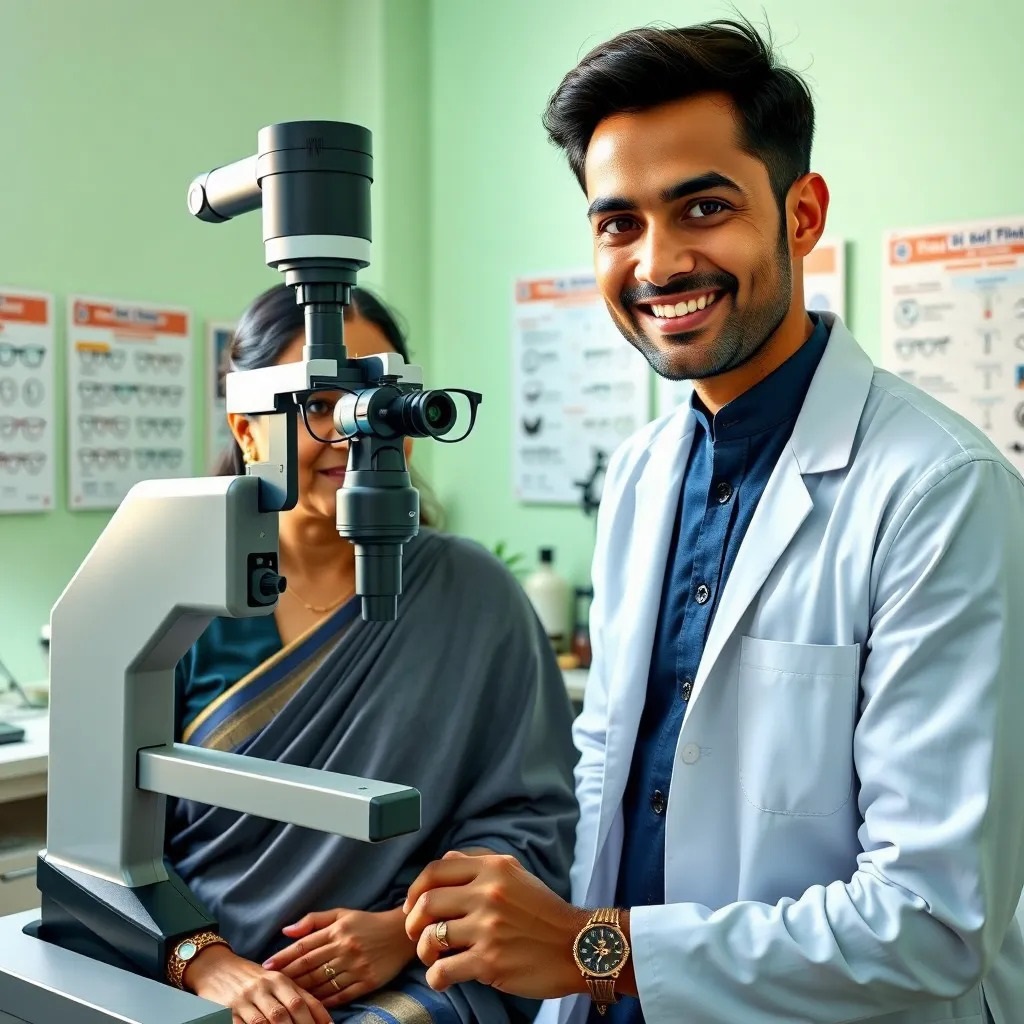Are you searching for an "eye specialist near me"? With so many options available, it can be overwhelming to choose the right one. In this blog, we will guide you through the common eye issues, the points to consider when choosing an eye specialist, and the different types of eye care professionals to ensure you receive the best care for your eyes.
Common Eye Issues and When to Seek Help
Our eyes are one of the most delicate and complex organs in our body. However, they can be prone to various issues, including:
- Dry Eyes: A common condition characterized by a lack of tears or poor tear quality.
- Cataracts: A clouding of the lens in the eye that affects vision.
- Glaucoma: A group of eye conditions that damage the optic nerve.
- Age-Related Macular Degeneration: A condition that causes vision loss in older adults.
- Conjunctivitis: An inflammation or infection of the conjunctiva, the thin membrane covering the white part of the eye.
If you experience any of the following symptoms, it's essential to seek help from an eye specialist:
- Blurred vision
- Double vision
- Eye pain or discomfort
- Redness or swelling
- Sensitivity to light
Choosing the Right Eye Specialist
When choosing an eye specialist, consider the following points:
- Qualifications and Certifications: Look for a specialist with a degree in ophthalmology or optometry and relevant certifications.
- Experience: Choose a specialist with experience in treating your specific eye condition.
- Reputation: Check online reviews and ask for referrals from friends and family.
- Communication Skills: Ensure the specialist explains your condition and treatment options clearly.
- State-of-the-Art Equipment: Look for a specialist with access to the latest technology and equipment.
Types of Eye Care Professionals and Their Expertise
There are several types of eye care professionals, each with their own expertise:
- Ophthalmologist: A medical doctor who specializes in eye surgery and advanced eye care.
- Optometrist: A primary healthcare professional who diagnoses and treats eye disorders, prescribes glasses and contact lenses, and provides routine eye exams.
- Optician: A professional who dispenses glasses and contact lenses, but does not perform eye exams.
- Orthoptist: A professional who specializes in the diagnosis and treatment of eye movement disorders.
- Low Vision Specialist: A professional who helps patients with significant vision loss adapt to their condition.

Frequently Asked Questions (FAQs)
Q: What is the difference between an ophthalmologist and an optometrist?
A: An ophthalmologist is a medical doctor who specializes in eye surgery and advanced eye care, while an optometrist is a primary healthcare professional who diagnoses and treats eye disorders.
Q: How often should I get my eyes checked?
A: It is recommended to get your eyes checked every 2-3 years, or as advised by your eye specialist.
Q: Can I buy glasses online without an eye exam?
A: No, it is not recommended to buy glasses online without an eye exam, as it may lead to incorrect prescriptions and discomfort.
Q: What is the cost of an eye exam in India?
A: The cost of an eye exam in India varies depending on the location, type of exam, and specialist. On average, it can range from ₹500 to ₹2,000. Optician or optometrist usually does not charge any money for vision testing if spectacle is purchased from their store.
By understanding the common eye issues, choosing the right eye specialist, and knowing the different types of eye care professionals, you can ensure you receive the best care for your eyes. Remember to prioritize your eye health and seek help if you experience any symptoms or concerns.
You may also like to read:
1. A Comprehensive Guide to Finding the Best Eye Clinic Near Me
2. Finding the Perfect Optician Near Me: A Comprehensive Guide
3. Unlock the Secrets to Perfect Vision: A Comprehensive Guide on How to Improve Eye Vision
4. Finding an Eye Doctor
5. Finding the Best Eye Specialist Nearby
![]()
![]() Call us for any query: +91-98-21-21-8128
Call us for any query: +91-98-21-21-8128![]()
![]() Call us for any query: +91-98-21-21-8128
Call us for any query: +91-98-21-21-8128

![]()
![]()
![]()
![]()
![]()
Leave Your views & comments here